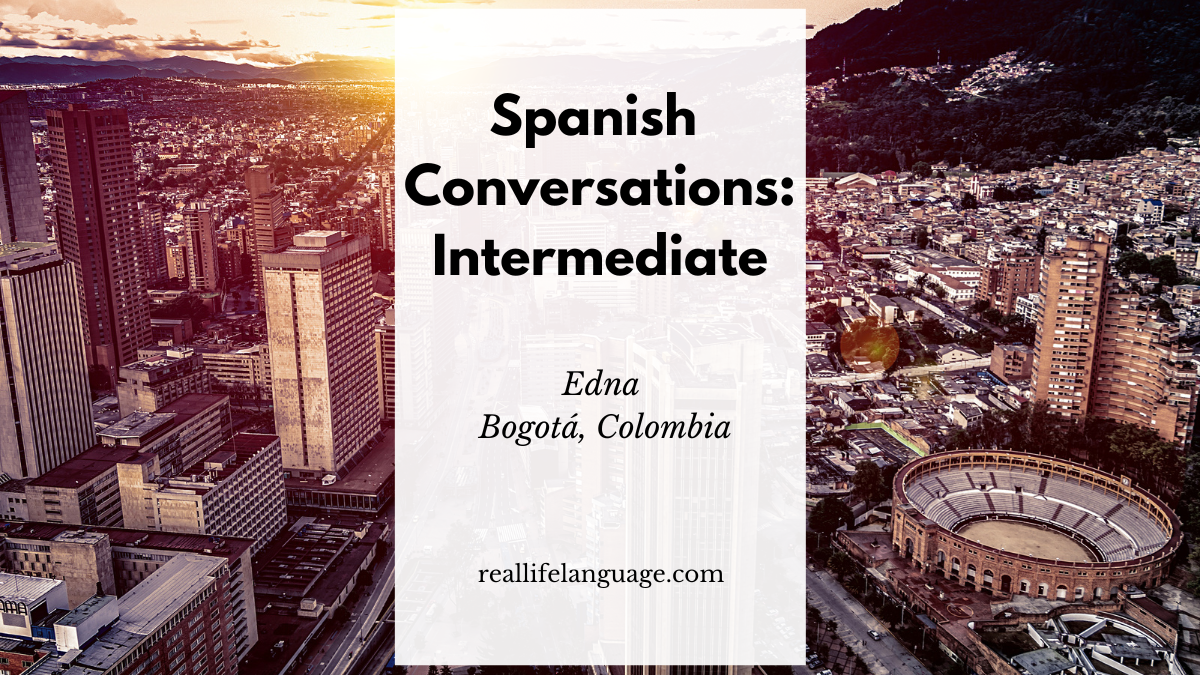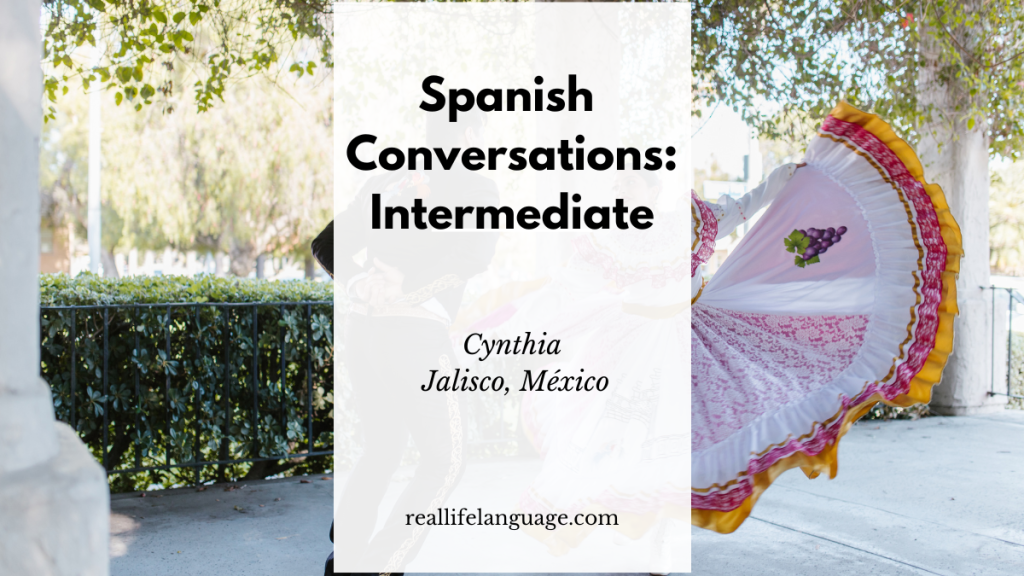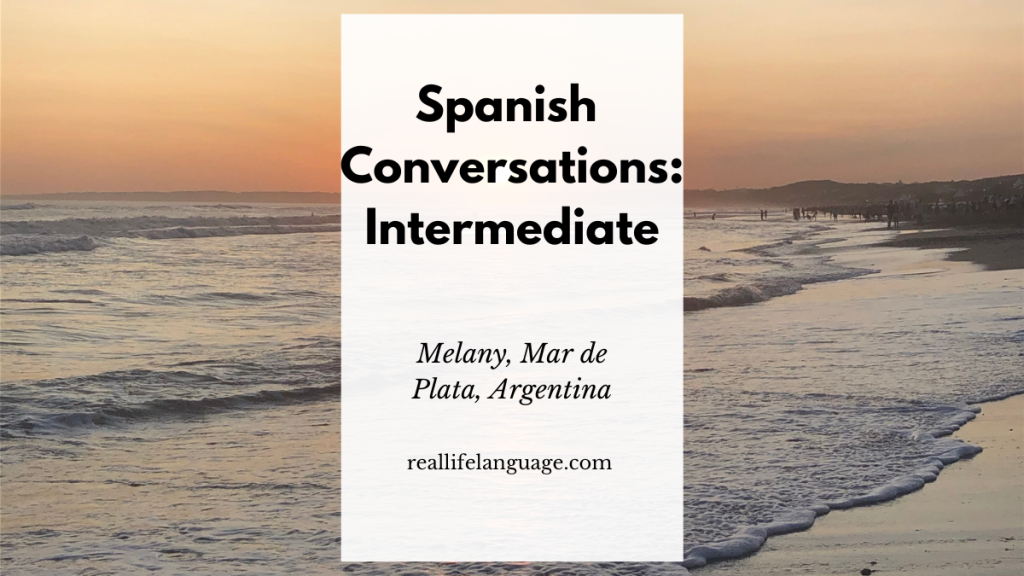
This article summarizes an intermediate Spanish conversation from an online lesson and offers practical tips for learners who want to learn Spanish through real-life topics. The original video and its creator provided an authentic exchange touching travel, daily life, culture, health, art and work—perfect material for students aiming to improve listening comprehension and to learn Spanish expressions in context.
Overview of the conversation
The speaker recounts personal stories and opinions: an unforgettable first trip abroad, a lively birthday weekend, historical vacations, personality traits, hopes for the future, the meaning of friendship, differences between parties in Turkey and Latin America, Colombian culture and nature, health systems, technology, and employment challenges. Each short story contains useful vocabulary and natural spoken patterns that intermediate learners can mimic to sound more fluent.
Highlights from the conversation
First trip and travel impressions
The speaker describes travelling outside Colombia for the first time, the excitement at the airport, and the first passport stamp. Key expressions include anticipation (estar emocionada), first-time experiences (por primera vez) and descriptive past tense: “fue un día inolvidable.” These are great phrases to practice narrative past tense and emotional vocabulary while you learn Spanish.
“My first trip was to Istanbul… from a plane it is beautiful… it’s definitely an unforgettable day for me.”
Weekend celebrations and multicultural gatherings
A birthday party mixing people from Morocco, Turkey, Peru and France became a language exchange: dancing, wine, and late-night celebrations. The speaker contrasts this with calmer parties in her current city, offering useful comparative language: “más calmadas,” “no son tan calientes,” “hasta las seis de la mañana.” These comparative structures are practical for learners to describe cultural differences.
Personality, future plans and friendship
The speaker defines herself as creative, sociable and happy, and shares goals: publishing books, learning German, Russian and Italian, and possibly moving abroad. She explains friendship as a selective, value-based bond. These reflections include vocabulary for feelings, ambitions and relationships—good material to practice first-person descriptions and future tense.
Culture, nature and the arts
Colombian diversity—different ethnicities, accents, music and geography—is emphasized. The speaker praises the Amazon and coastal beaches, and mentions artists like Botero and Nobel laureate Gabriel García Márquez. These topics allow learners to practice descriptive adjectives, geography vocabulary and cultural references while they learn Spanish.
Health, technology and employment
The speaker compares health systems (noting Turkey’s public health system), comments on technology’s benefits and drawbacks, and describes high informal employment in Colombia. These opinions present argumentative language and vocabulary related to public health, technology and the labour market—useful for intermediate learners to express viewpoints.
Practical Spanish phrases and vocabulary for learners
Below are selected phrases from the conversation with translations and usage tips. Rehearse them aloud, substitute personal details, and use them to build your own short speeches.
- Un día inolvidable — An unforgettable day. Use to start any memorable anecdote.
- Por primera vez — For the first time. Useful to narrate first experiences.
- Mi pasaporte tenía el primer sello — My passport had its first stamp. A concrete image for travel stories.
- Estar emocionado/a — To be excited. Pair with “porque” to explain reasons.
- Más calmado/a que — Calmer than. Use to compare cultures or events.
- Compartir ideologías, gustos e intereses — To share ideologies, tastes and interests. Useful for talking about friendship.
- Me gustaría publicar un libro — I would like to publish a book. Practice future and conditional forms.
- La Amazonía es el pulmón del mundo — The Amazon is the lung of the world. Cultural phrase for nature topics.
- Trabajo informal — Informal employment. Learn this term for economic discussions.
- Salud pública gratuita — Free public health. Useful for comparing health systems.
Grammar and practice tips
1) Narration practice: retell the speaker’s first-trip story using past tenses. Switch between pretérito and imperfect to capture actions vs. background. 2) Opinion practice: use “pienso que” or “creo que” to express viewpoints about technology and health. 3) Comparative practice: form sentences with “más… que” to describe parties, cities and seasons.
How to use this conversation to learn Spanish
1. Listen once for gist, then again to note vocabulary. 2. Shadow short sentences to improve pronunciation and rhythm. 3. Record yourself telling the same stories in the first person. 4. Create flashcards with new phrases from the vocabulary list. These steps help intermediate learners actively engage with the material and learn Spanish through authentic content.
Conclusion
The conversation offers rich, everyday language across topics learners need: travel, culture, feelings, art, health and work. By studying vocabulary, practicing narration and expressing opinions, intermediate students can deepen comprehension and speak more naturally. Use the phrases above to rehearse and personalize the stories—this is a practical path to learn Spanish in context.
100s of videos to learn Spanish:
https://real-life-language.kit.com/b1531a6404
Learn Spanish with a Real Conversation: Intermediate Practice with John from Cali

